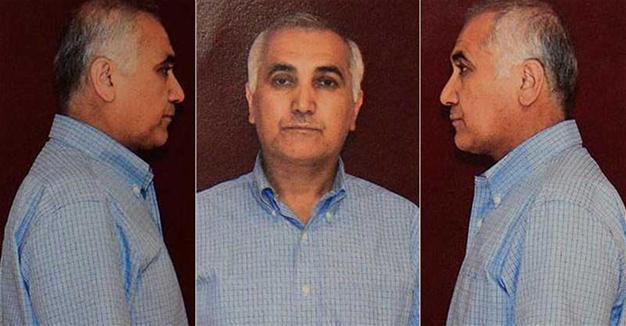
Suspects in a case into the release of a key figure in the July 15, 2016 coup attempt, believed to have been masterminded by followers of the U.S.-based Islamic preacher Fethullah Gülen, have appeared at court in Ankara.
The trial into those suspected of being involved in releasing Adil Öksüz, known as the Gülenists’ “imam” of the Air Force, started in the Ankara 23rd Heavy Penal Court on Oct. 2. “Imam” is a term used by Gülenists to mark local leadership.
Öksüz was detained near the Akıncı Air Base, used by coup-plotters as the headquarters during the thwarted attempt, on the morning of July 16, 2016, only to be released by Judge Çetin Sönmez on July 18, 2016, after which he went on the run.
The case concerns negligence allegations in Öksüz’s release and has a total of 28 suspects, of whom 13 are soldiers, 14 are security general directorate personnel, and one is a former prime ministerial adviser being tried without arrest.
The testimony of the Murat Bayrak, a police officer who was on duty on July 15, 2016, was taken on Oct. 2, and he admitted his links to the Fethullahist Terrorist Organization (FETÖ).
Bayrak is accused of not showing enough sensitivity during the transfer of Öksüz from the gendarmerie command to the Ankara Police Headquarters, not giving information to his superiors, and aiding in removing evidence against the key coup figure.
According to the indictment, Bayrak had connections to several users of the smartphone application ByLock, used almost exclusively by Gülenists to communicate, and had the application installed on his phone.
“Do you want to benefit from effective remorse law,” the court asked Bayrak, to which he said “yes” and revealed the name of the person who installed ByLock on his phone.
Saying a teacher called “Serkan” downloaded the app on his phone, Bayrak added that he does not know the full name or the whereabouts of this teacher.
He added that he had attended the meetings of Gülenists but could not remember the name of the other participants.
Noncommissioned officer Zeki Çınkır, who is accused of talking to Öksüz after his release and adding his name to the list of detainees as a “soldier,” said he did not know that Öksüz was a civilian.
Saying he gave Öksüz his belongings back after his release, including a GPRS device, Çınkır noted that there were 98 people in custody on that day and he delivered their belongings too.
“I didn’t know that Öksüz’s objects constituted evidence,” Çınkır told the court, adding that he took Öksüz’s number “in case the prosecutor asks something.”
“Öksüz introduced himself to me when he called. He said he forgot his belt and watch there,’ so I naively searched and found them. I told him he should come to get them himself but he said he could not as he was going to [the northwestern province of] Sakarya,” Çınkır said.
He also noted that a deputy chief public prosecutor asked for Öksüz’s number a day later, but “he does not know why he was not caught despite the technical tracking decision.”